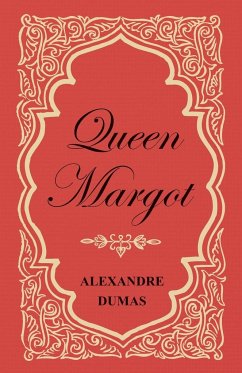
Marguerite de Valois
An Historical Novel
Versandkostenfrei!
Versandfertig in 1-2 Wochen
17,99 €
inkl. MwSt.

PAYBACK Punkte
9 °P sammeln!
In 1570s France, young King Charles IX is dominated by his mother, Queen Catherine de Medici. Catherine engineers the massacre of the Huguenot (Protestant) leaders, and also seeks to kill King Henry of Navarre, the leader of that faction, and the third in line to the French throne. But Henry proves to be a man of resourcefulness, intelligence, political savvy--and just plain luck! First-rate action and intrigue fill this intense political drama.













